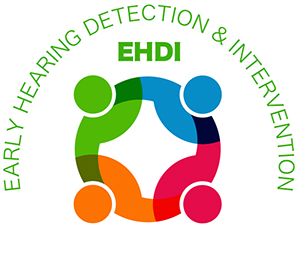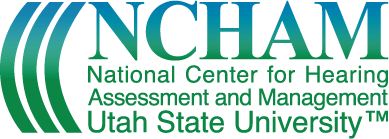Webinar: Barriers to and Facilitators of EHDI: Learning from our Past for a Better Future
When: June 9, 2022 | 12:00 pm - 1:00 pm MT
Description
Completion rates for infant newborn hearing screening in the United States have been consistently high since the inception of state-specific universal newborn hearing screening programs.
Unfortunately, rates for diagnostic follow-up and early intervention (EI) enrollment continue to lag behind screening rates, despite approximately 20 years of program evolution in most states. This presentation will synthesize what we have learned from a meta-analysis spanning literature from 1990 to 2021 regarding barriers to loss-to-follow up at critical early hearing detection and intervention (EHDI) time points. Specific barriers, including screening and diagnostic results interpretation, lack of monitoring for risk factors, limited access to quality diagnostic assessment and EI, under-reporting of diagnostic results, under-referral to EI services, and lack of primary care support will be highlighted along with sociodemographic factors that might contribute to loss-to-follow-up.
Additionally, we will discuss factors that promote achieving the primary EHDI goals of timely hearing detection and intervention, including adhering to screening and diagnostic protocol standards, cross-disciplinary care coordination, parent-to-parent support, and multi-faceted outreach efforts. Implementing evidence-based facilitators of EHDI goals will promote timely and accurate diagnosis and timely enrollment in EI, which will in turn lead to optimal developmental outcomes in infants and children who are deaf and hard-of-hearing.
Learning Objectives
- Attendees will be able to identify barriers to timely early hearing detection and intervention.
- Attendees will be able to discuss successful facilitators of timely diagnosis and early intervention enrollment.
- Attendees will be able to implement evidence-based quality improvement measures in their own programs to facilitate EHDI.
Presenter
Ursula M. Findlen, Ph.D., is the Director of Audiology Research in the Division of Clinical Therapies- Audiology Department at Nationwide Children’s Hospital and an Assistant Professor-Clinical at The Ohio State University College of Medicine, Department of Otolaryngology- Head and Neck Surgery. She is also currently the Outreach Council Chair for the American Academy of Audiology and former President of the Ohio Academy of Audiology. Dr. Findlen engages in clinical practice and research endeavors related to pediatric (re)habilitative audiology, particularly in regards to a multidisciplinary team approach to family-centered care. Her research interests include infant diagnostics and improving outcomes of children with hearing loss through systematic quality improvement and population health endeavors.
Lisa Hunter is Scientific Director of Audiology and Professor at Cincinnati Children's Hospital Medical Center and the University of Cincinnati. She collaborates on a number of funded studies including evaluating physiologic factors associated with risks for hearing loss and understanding mechanisms for improved follow-up with newborn hearing screening in high risk families. She is a faculty with the Leadership Education in Neurodevelopmental and related Disabilities at Cincinnati Children's Hospital Medical Center.


